How to cook cats in Magic Arena, and other winning combos
Theros has revolutionized the Magic Arena meta.
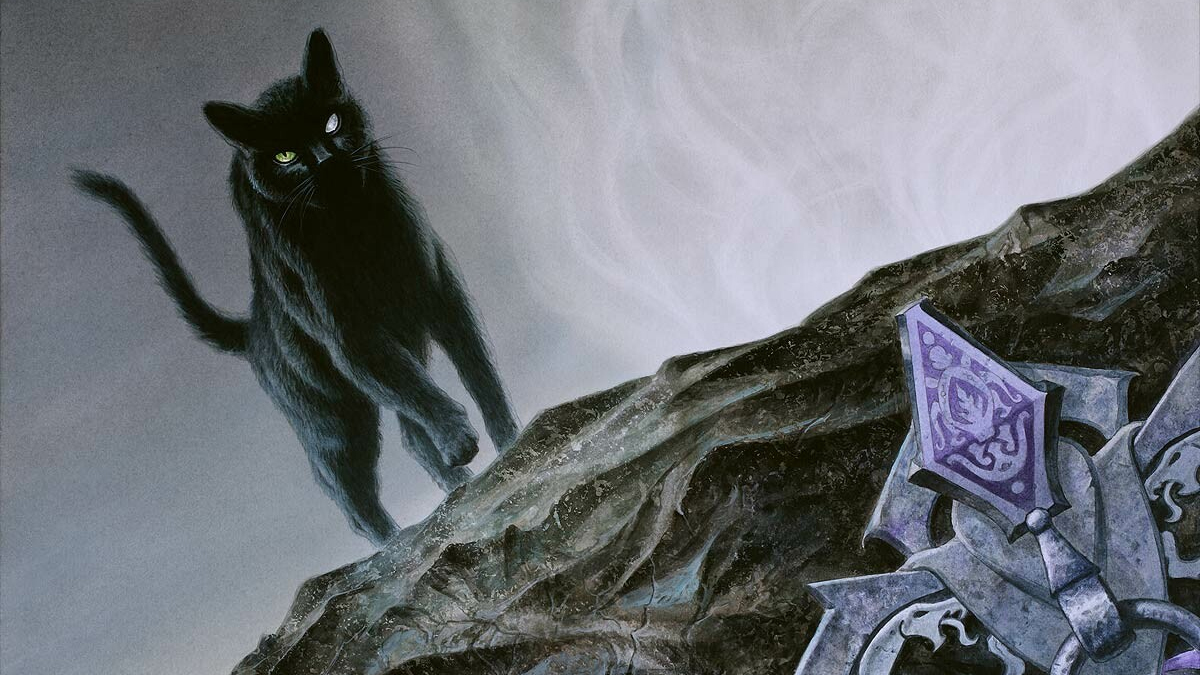
Tossing cats into the oven. Reanimating giant plant monsters. Grinding opponents out of resources before unleashing a giant Sphinx. Or simply pointing one fiery burn spell after another at an opponent’s face until they’re dead. Theros: Beyond Death's upending of the Magic: The Gathering Arena meta has given us the opportunity to do all that and more.
With new sets releasing like clockwork every three months, Arena's meta is constantly shifting, even for free-to-play competitors. Theros has kicked that into overdrive, with a Standard format that just a month seemed solved now completely reshaped by the Gods, Demigods, Titans and yes, giant plant monsters of Theros—just in time for the World Championship taking place in Honolulu this weekend.
Let’s start with that plant monster, also known as Uro, Titan of Nature’s Wrath. It’s a key new piece of one of Standard’s most popular decks.
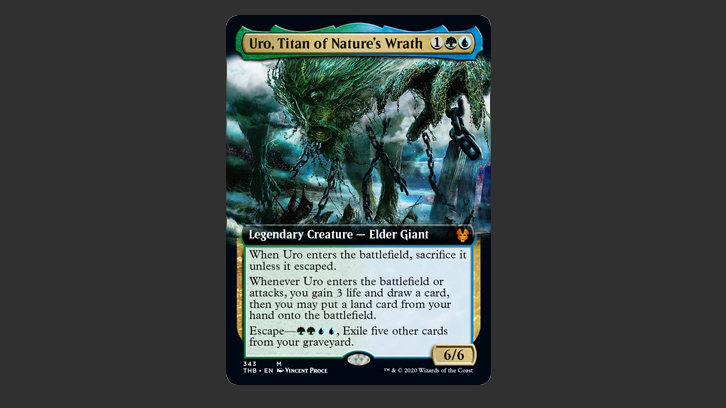
A 6/6 for two mana seems like a steal, but the new ability Escape provides an interesting twist here. The first time you cast Uro or its Elder Titan brethren from your hand, it will be sacrificed upon entering play. But you’ll still get the ability on the card. In Uro’s case that means you’ll gain three life, draw a card and put a land directly into play. Later, if you can pay the Escape cost, you can cast the card from your graveyard and you'll have a 6/6 on your side that will draw you a card all over again.
Uro has provided a shot in the arm to one of Arena’s most explosive decks: green-blue ramp.

The deck’s plan is straightforward: Gain access to additional mana from its lands as quickly as possible thanks to Uro—and a host of other cards that can similarly put additional lands into play—along with the planeswalker Nissa, Who Shakes the World, which doubles all the mana your Forests produce.
The deck then funnels all that mana into its signature plays: Escaping Uro from the graveyard, casting a giant Hydroid Krasis (which scales with how much mana you put into it), or stealing opponents' cards with an Agent of Treachery. All in all, the deck is responsible for creating some of the wildest plays you'll see in Arena.
Keep up to date with the most important stories and the best deals, as picked by the PC Gamer team.
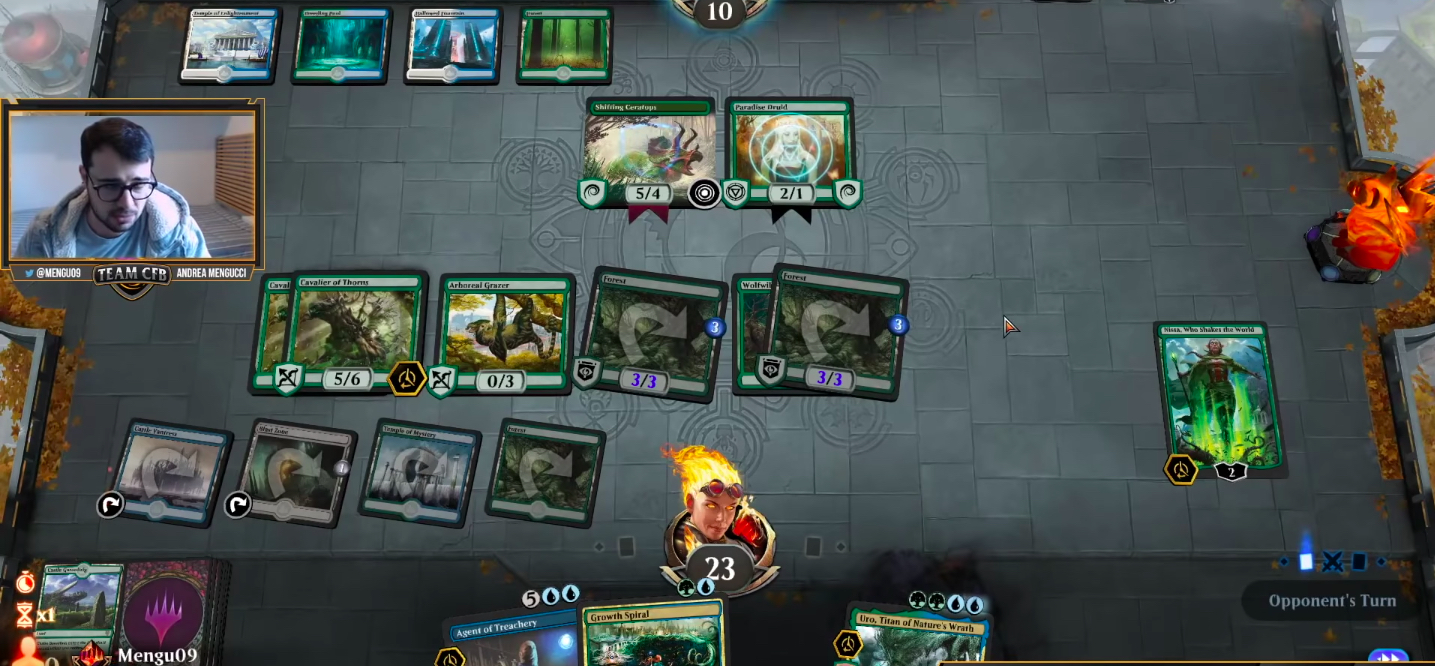
Want to slow it down and slowly drain your opponent’s will to play by countering or negating every play they make? The Theros powerhouses Shatter the Sky and Dream Trawler have made that possible.
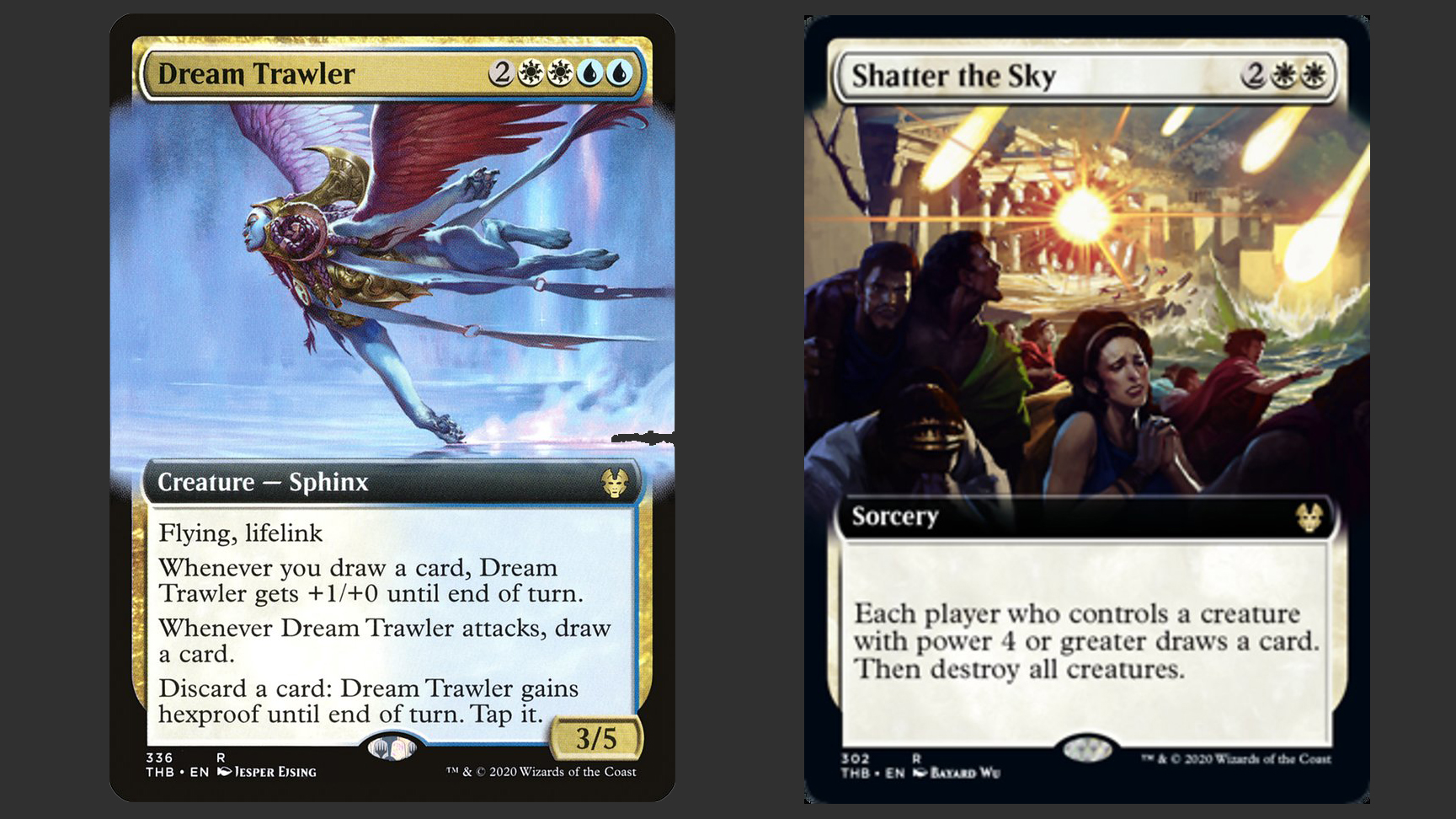
Control decks in Magic tend to center around blue and white, the two colors that have the spells most suited to simply saying no to everything opponents try to do. From new spells like Shatter the Sky that kill multiple creatures at once to the dreaded counterspell Absorb that stops a spell before it even has an effect, we've seen a resurgence of the classic blue-white control deck archetype.

After taking over the game with its control spells, this deck leans on another Theros addition in Dream Trawler. With the ability to protect itself from removal spells by discarding a card, it's a resilient threat that the blue-white Control deck can lean on to close out a game. It doesn’t hurt that the Trawler also draws cards when it attacks and gains life equal to the damage it deals, crucial for a deck that is likely to take damage in the early game.

If going fast is more your thing, there’s the good old-fashioned mono-red deck. The appeal of mono-red is the same as it has been for all of Magic’s 27-year history: hit fast and hit hard. When necessary, throw fire directly at opponents' life totals, bypassing the battlefield entirely.
It’s a formula that hasn’t changed much in almost three decades, but with Theros hitting the virtual streets of Magic Arena, there’s never been a better time to start attacking as early as the first turn of the game.
Credit for that goes to a pair of new Theros cards: Phoenix of Ash and Anax, Hardened in the Forge.
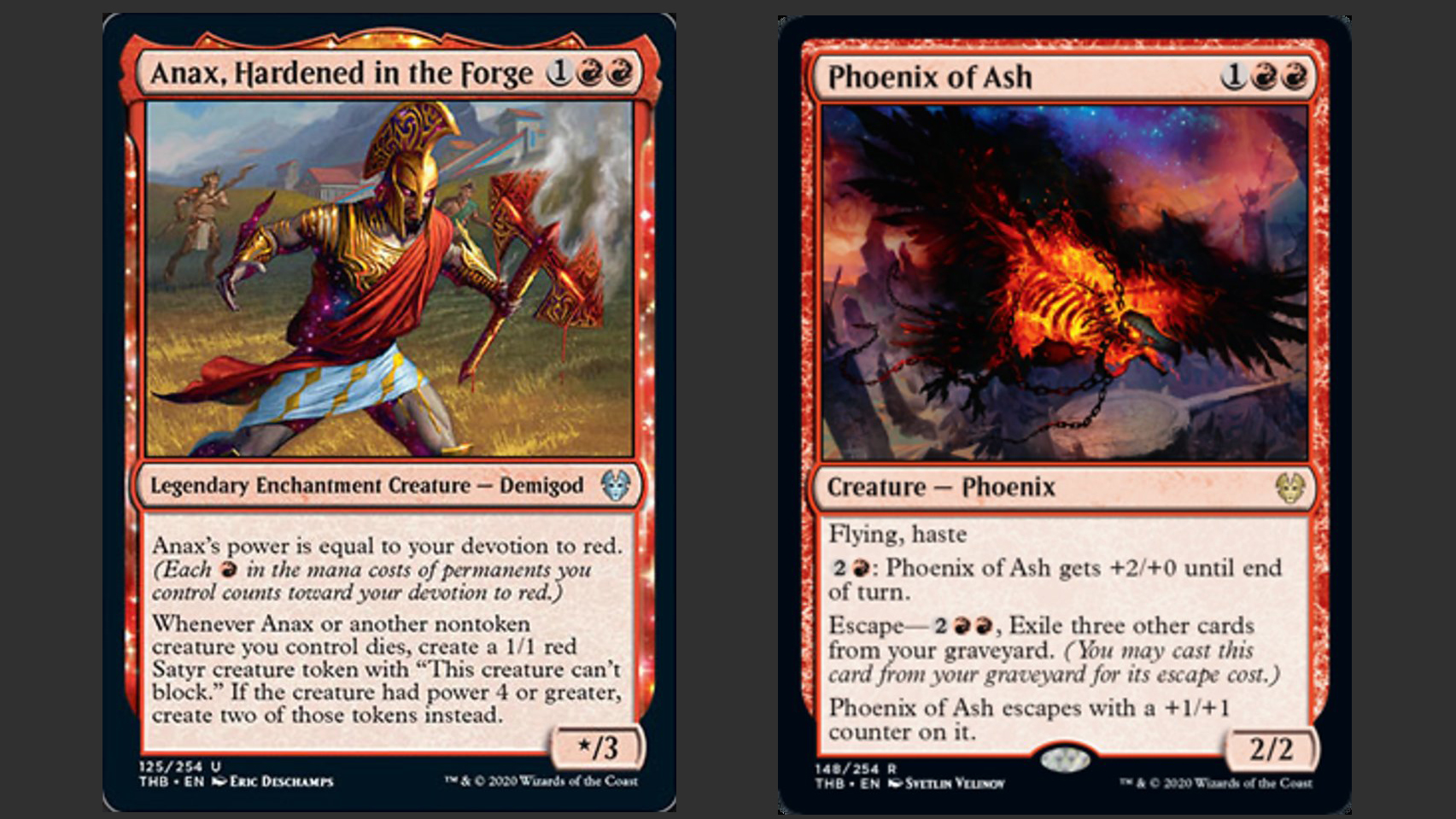
Another Escape card making an impact, Phoenix of Ash does exactly what you’d expect a Phoenix to do. It’s on fire, it flies and it’s never truly dead. The card has been a blazing boon to red mages, and gives the red deck the ability to push through damage even after opponents stabilize with removal spells or creatures of their own.
Anax is the other new addition, and it's a tricky card that shows off Devotion, a mechanic that first appeared on cards in 2013 but is back as we return to the world of Theros, where Gods gain power in accordance with how devoted their worshippers are. This is represented in-game with the Devotion mechanic, which counts the number of colored mana casting costs of cards to determine an amount of Devotion.
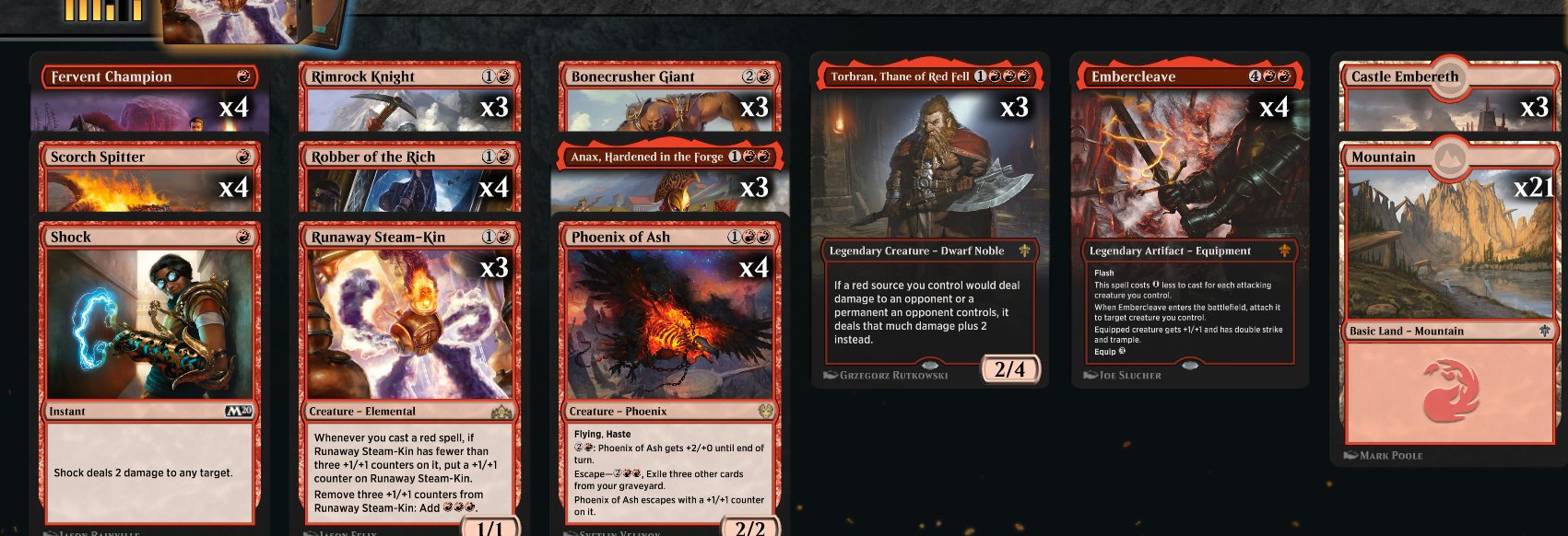
For Anax, its power is equal to your Devotion to Red (you can count the red symbols in the top-right of your cards on the battlefield to determine this number, but Arena will also do the work for you and clearly display it). Because the mono-ted deck puts a lot of creatures onto the board very quickly, it quickly establishes a high amount of Devotion and turns Anax into a massive attacker. And should it ever pick up the fearsome equipment Embercleave—which allows it to deal damage twice in a turn—it will usually end the game on the spot.
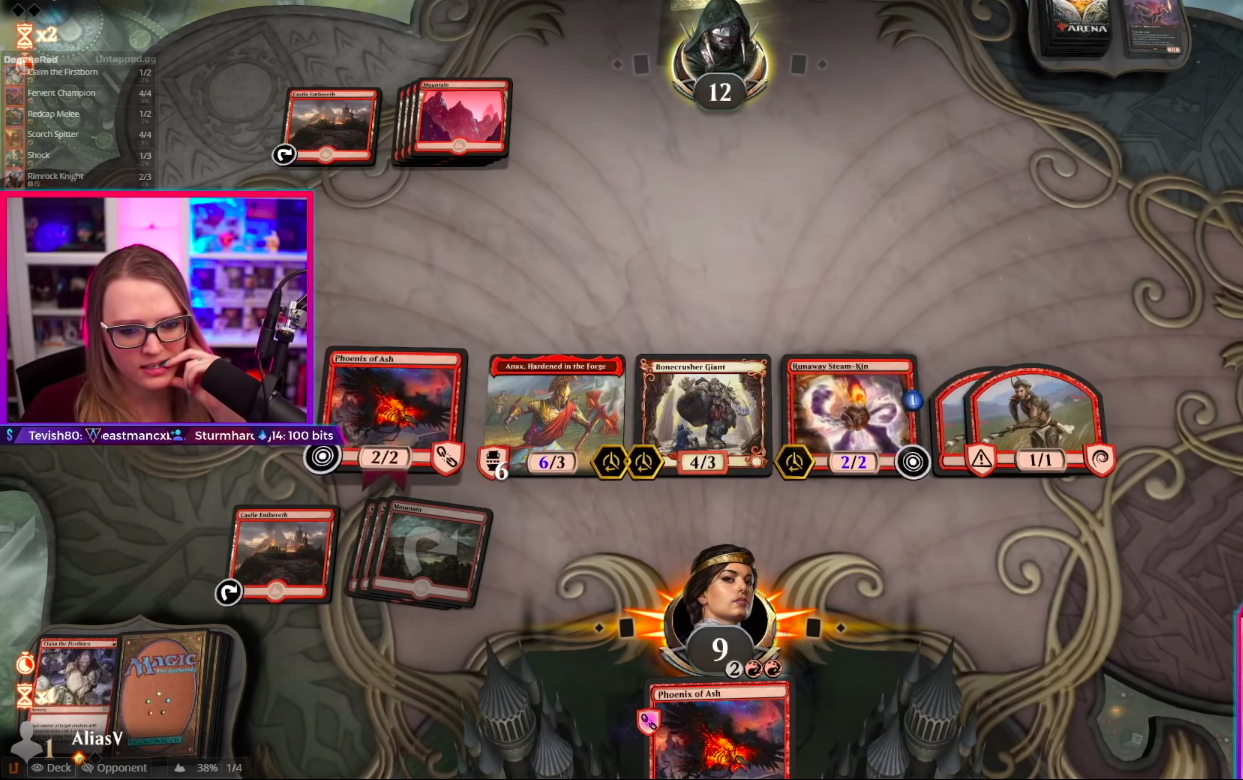
The best Magic Arena budget decks
As covered in our Arena Beginner’s Guide, the way you build decks in Magic Arena is straightforward: you gain cards from opening packs, or you “craft” cards using Wildcards that can be redeemed for any one card of a corresponding rarity. This means that your Wildcards come at a premium when dipping your toes into the game, so here’s a few decks that don’t need many Wildcards to be competitive—plus you can build on them as you expand your collection.
The first is mono-white lifegain, which does exactly what the name suggests. By keeping your deck one color, you won’t have to worry about not having the right kind of mana, and you’ll save precious Wildcards. Plus, it turns out you don’t need a second color to build a powerful deck that can run up your own life total as quickly as it runs down your opponent's.

Ajani’s Pridemate is the key to the deck, growing larger every time you gain life, which is something almost all your cards do—especially with the help of the Theros God Heliod. Coming in at just 10 rares and with room to grow, this is an ideal way to dip your toes into the format.
I mentioned throwing Cats into Ovens, and I won’t leave you hanging. While it’s not new, the combo of Cauldron Familiar and Witch's Oven is still one of the silliest and most enjoyable things you can do in Magic Arena. Every turn, the Oven can sacrifice the Cat to cook a Food token, which can then be sacrificed to bring the Cat back from the graveyard, draining one life from your opponent in the process. It doesn’t seem like much at first, but it adds up quickly while padding your own life total.
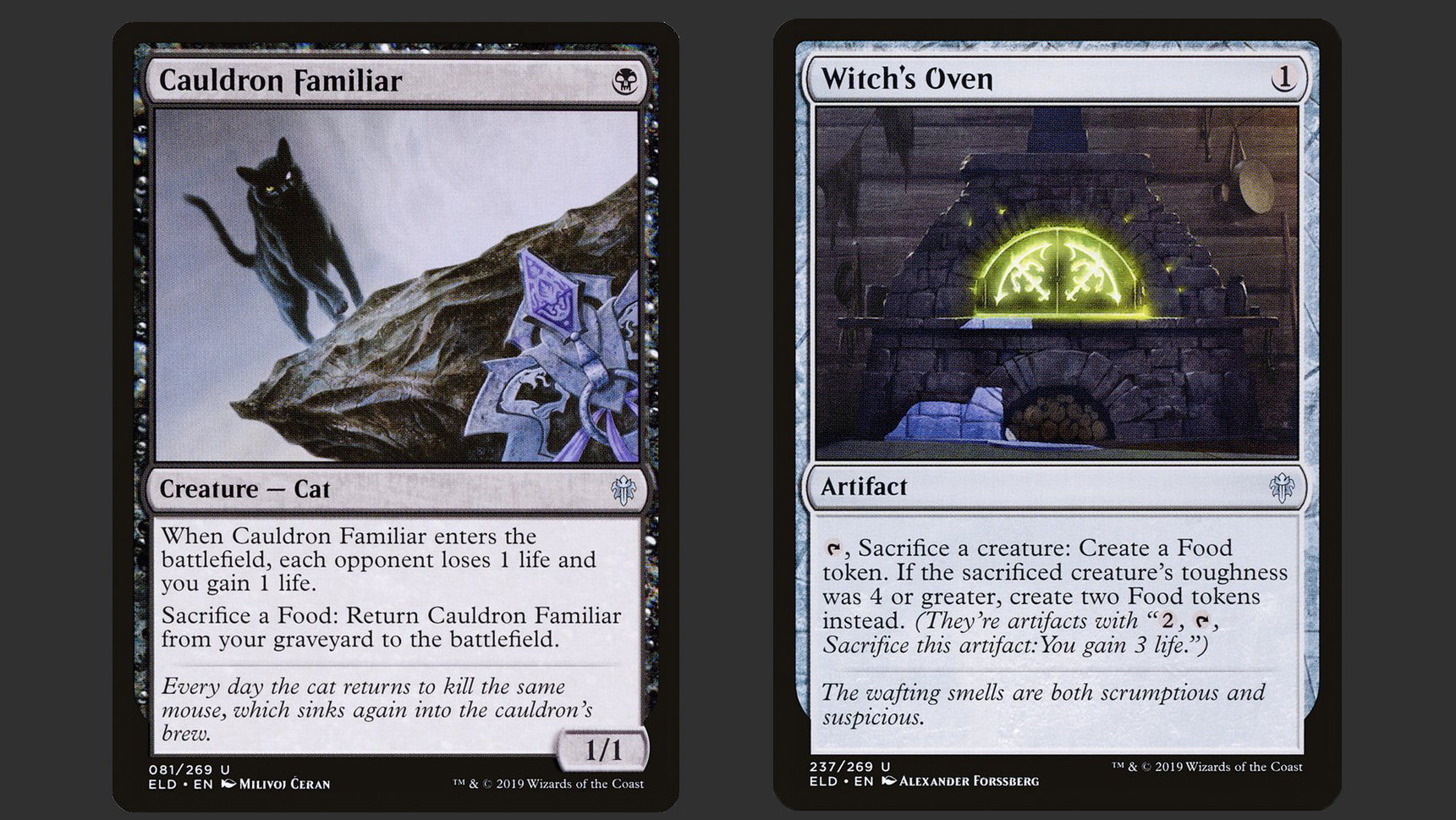
One of the reasons this is a great place to get started—besides it simply being awesome to win games by cooking cats repeatedly—is that the deck is easy to upgrade if you want to be more competitive. One of the best decks in the format is Jund Sacrifice, a three-color deck that uses the same engine you see here, but with added green cards to increase its potency.
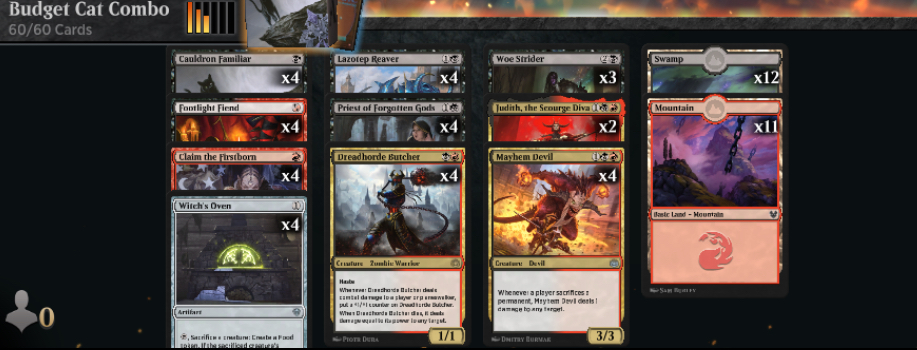
If you're new to Magic: Arena, hyper-efficient removal spells, huge attackers, and cat cooking are just some of the tactics available to you. It's an intimidating game to jump into for the first time, but rewarding, and the ever-shifting meta is keeping it fresh. To get a better sense of the competitive strategies in use now, you can watch the Magic: Arena World Championship on Twitch this weekend—it's running from Friday to Sunday.

